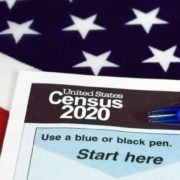Judge orders discovery on issue of racial bias to move forward
AN order was made on Friday, July 5 to continue a court case looking into whether the pursuit by government officials to add a citizenship question on the upcoming 2020 Census was motivated by racial bias.
U.S. District Court Judge George Hazel issued the order after the Trump administration insisted on Friday that it was still seeking to include the citizenship question in the census despite an earlier Supreme Court ruling that it must be removed.
Last week on June 27, the Supreme Court blocked Trump’s initial effort to add the question, ruling that the rationale given by officials were “contrived.”
But on Wednesday, Trump said on Twitter that his administration would continue looking for ways to make sure the census would include the citizenship question.
No final decision on whether the citizenship question would be added was made as of press time, but President Donald Trump did tell reporters on Friday that he may order an executive order to make sure it was included.
“We’re thinking about doing that. We have four or five ways we can do it. It’s one of the ways that we’re thinking about doing it very seriously,” Trump told reporters outside the White House on Friday.
Trump also suggested that the question could be added later on as an addendum if approved later.
“So we’re working on a lot of things, including an executive order,” said Trump.
Rejecting the Trump administration’s request to put the open case on hold, Judge Hazel on Friday added that questions into whether reasons were racially biased would continue to be relevant should the administration come with new reasons for adding the citizenship question.
“Regardless of the justification defendants may now find for a ‘new’ decision, discovery related to the origins of the question will remain relevant,” said Hazel.
The U.S. Constitution gives the power of determining how the census should be conducted to Congress. Absent any sufficient reason for having the question added, Trump’s actions have been questionable.
Trump said on Friday that the “number one” reason for wanting the citizenship question on the census was for electoral district drawing purposes. But that wasn’t the original legal reason given by the administration.
Commerce Secretary Wilbur Ross initially said that the question would be used to help protect the voting rights of racial minorities through the Voting Rights Act (VRA), which was signed into law in 1965.
But little evidence pointed to that being the actual reason for wanting the question to be added in the census. Rather, new evidence presented in May — according to those against the question — suggested that the question was motivated by a different reason.
Harddrives found by deceased Republican strategist Thomas Hofeller’s daughter revealed that Hofeller was instrumental in the Trump administration’s decision to add the question to the census.
In a 2015 study, Hofeller concluded that questioning respondents on their citizenship “would clearly be a disadvantage to the Democrats” and “advantageous to Republicans and Non-Hispanic Whites” in the redrawing of districts based on census data.
The Justice Department played off Hofeller’s involvement in the decision to add the question as a “conspiracy theory” according to Reuters.
The decennial count looks for population changes and other information about who makes up the United States — citizens and non-citizens alike.
More importantly, the census also uses the derived data to address many of the nation’s needs like determining how seats in Congress are set, and how funding allocations for certain programs like Medicaid benefits, law enforcement, and public schools are made.
Advocates pushing for a census without the citizenship question have long argued that the question would prompt people to opt out of participating in the census, thus rendering an incomplete picture of their communities.
They’ve argued that in the roughly 70 years since the VRA was signed into law, questions about citizenship have never been included or even used.
As of Wednesday, the process of printing the questionnaire had already started without the citizenship question, according to the Associated Press. Printing of the 2020 Census was originally scheduled to begin on July 1, less than a year ahead of distribution time.
It is unclear how or whether the process would be affected by current contentions. (Rae Ann Varona/AJPress)






